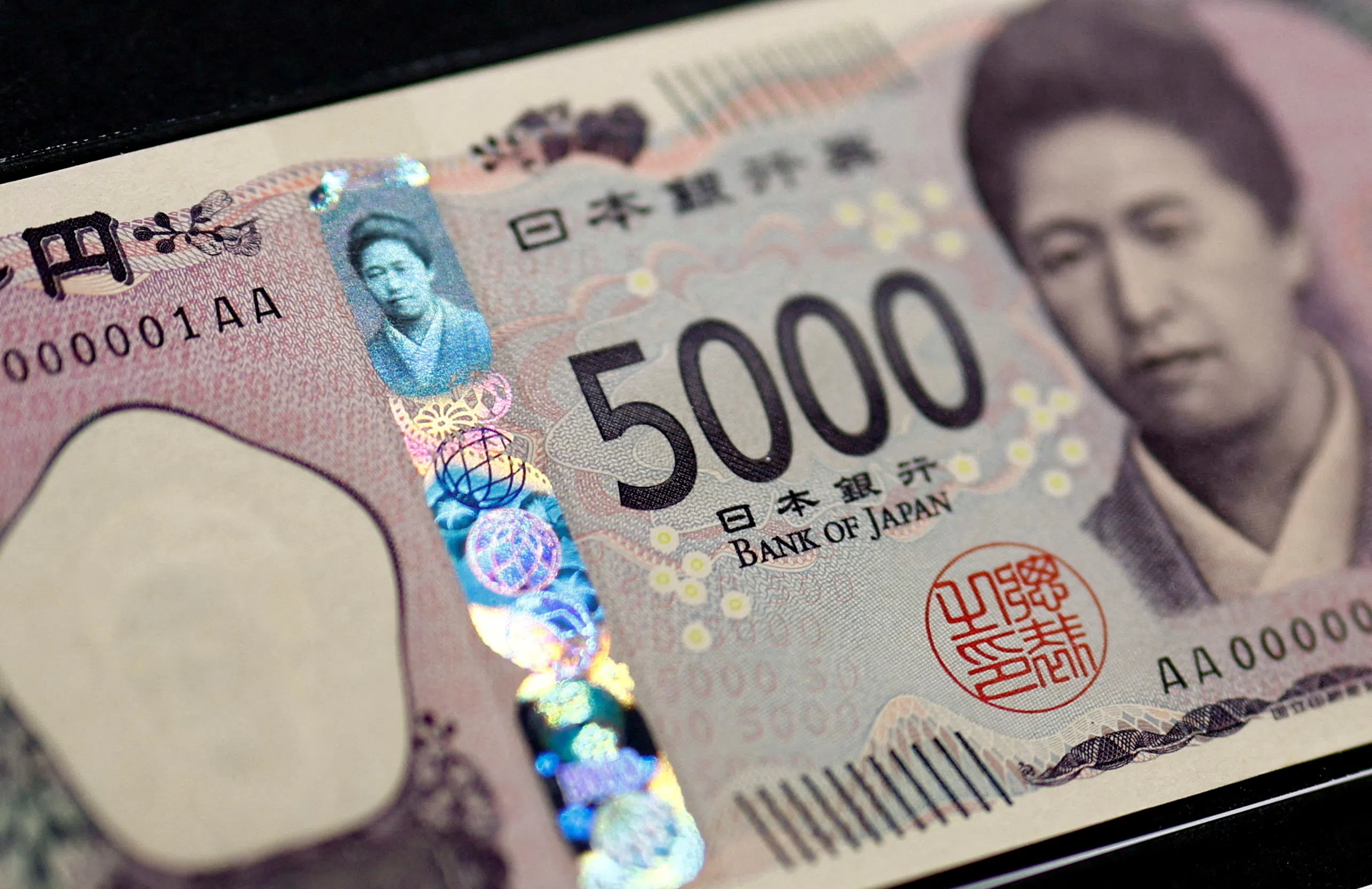THE yen lost ground to major currencies on Wednesday (Sep 25), while the yuan hit its strongest level in over a year, as China’s aggressive stimulus package provided the latest shot in the arm for risk appetite.
Meanwhile, the US dollar steadied to near 14-month lows against a basket of peers, but managed to regain some ground against the now often-volatile yen.
The dollar gained 0.78 per cent to 144.34 yen, while the euro rose 0.87 per cent against the Japanese currency. Sterling and Australian dollar gained over half a percentage point each.
Nordea Bank chief analyst Niels Christensen pointed to the good risk sentiment in Asia following China’s new measures as the reason behind a weaker yen.
The measures had a positive impact on Chinese and Asian equities overall, Christensen noted, with investors moving into riskier asset classes and borrowing in yen, where interest rates are low, to carry out these investments.
China’s stimulus contributed to a stronger euro in the session, with its resilience partly driven by a perception that a better outlook for Chinese demand could feed its way back through into Germany and through into Europe, said Jane Foley, senior forex strategist at Rabobank.
BT in your inbox
Start and end each day with the latest news stories and analyses delivered straight to your inbox.
Despite weak German economic data and concerns surrounding the French budget, the euro has held up “extremely well” against the dollar this week, she said.
The euro gained 0.06 per cent to US$1.1187, moving back towards a 13-month peak of US$1.1201 hit in August.
The Australian and New Zealand dollars backtracked after reaching multi-month peaks earlier in the session as China’s stimulus was seen as a good sign for the countries’ exports.
Data on Wednesday showed Australian domestic consumer prices slowed to a three-year low in August, while core inflation hit its lowest since early 2022, weighing on the Aussie which traded at US$0.68715 after peaking at US$0.6908 in the early Asian session, its highest since February 2023.
The kiwi rose to a nine-month top of US$0.63555, before declining to US$0.6314.
Markets globally were basking in the afterglow of China’s latest slew of support measures announced on Tuesday ranging from outsized rate cuts to aid for its stock market.
In line with its broad easing measures, the People’s Bank of China on Wednesday also lowered the cost of its medium-term loans to banks to 2 per cent from 2.3 per cent.
The onshore yuan rose to a 16-month top of 7.0012 per dollar while its offshore unit briefly strengthened past the key psychological level of seven per dollar and peaked at 6.9952 per dollar.
“The momentum forward for the yuan should take cues from China’s equity markets as a proxy for sentiment,” said Christopher Wong, a currency strategist at OCBC.
Elsewhere, sterling retreated 0.3 per cent to US$1.3369 from an earlier peak to March 2022 levels, as investors turned their focus to next month’s UK budget and the potential tax hikes it may include, despite less aggressive expectations of rate cuts from the Bank of England this year as compared to the Federal Reserve.
Markets are now pricing in a 59.1 per cent chance of a 50-basis-point rate cut at the Fed’s next policy meeting, up from just 37 per cent a week ago, according to the CME FedWatch tool.
Against a basket of currencies, the dollar was up 0.2 per cent at 100.45.
The dollar index fell more than 0.5 per cent in the previous session, its largest one-day percentage fall in a month.
Meanwhile, the Swedish krona was little changed at 10.1028 kronor per dollar, after Sweden’s central bank cut its key interest rate to 3.25 per cent from 3.5 per cent, as expected.
“Despite the more dovish tone by the Riksbank, SEK did not drop after the announcement,” analysts at ING said.
“It appears that the FX market isn’t as focused on domestic rates as it is the growth story at this stage.” REUTERS




